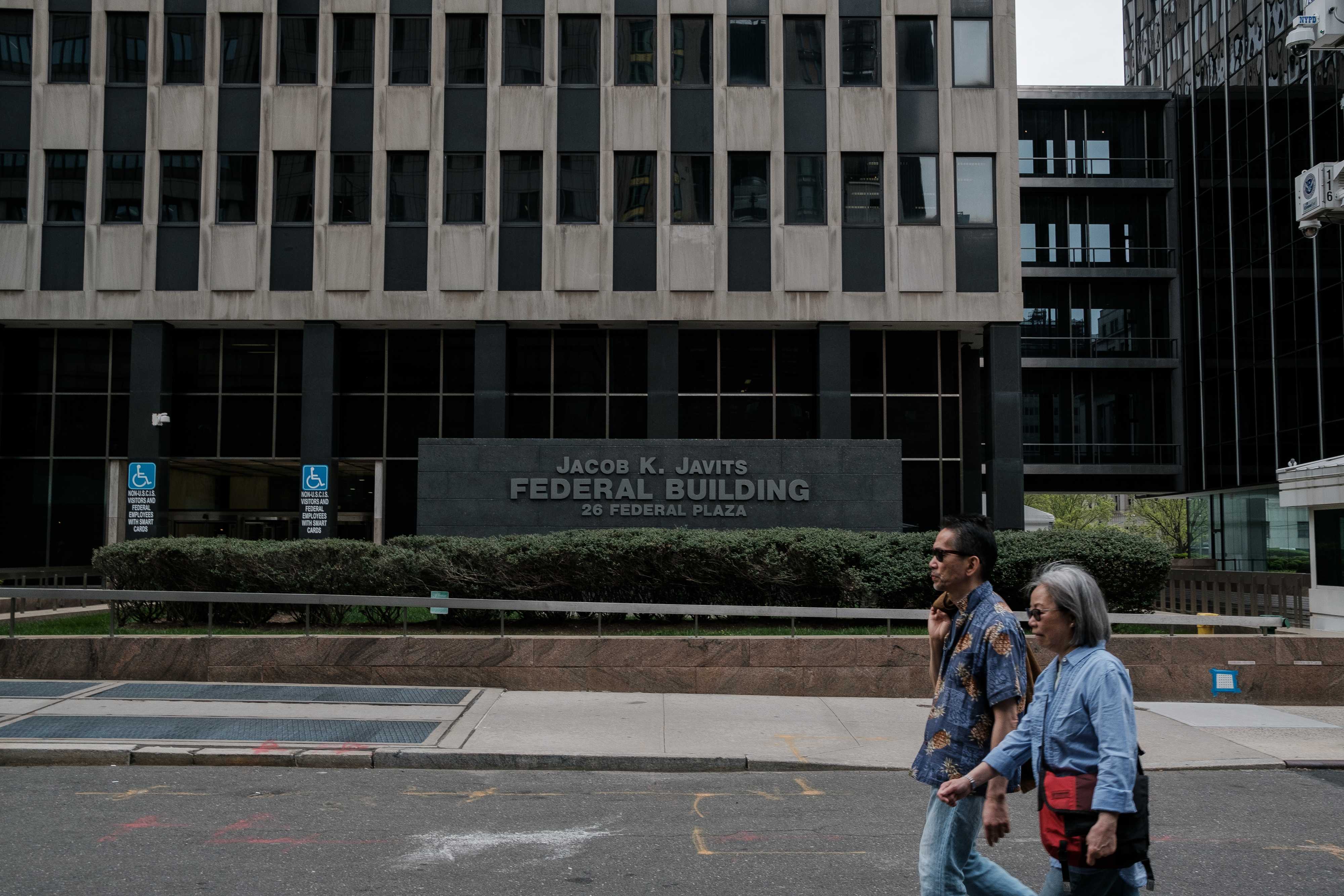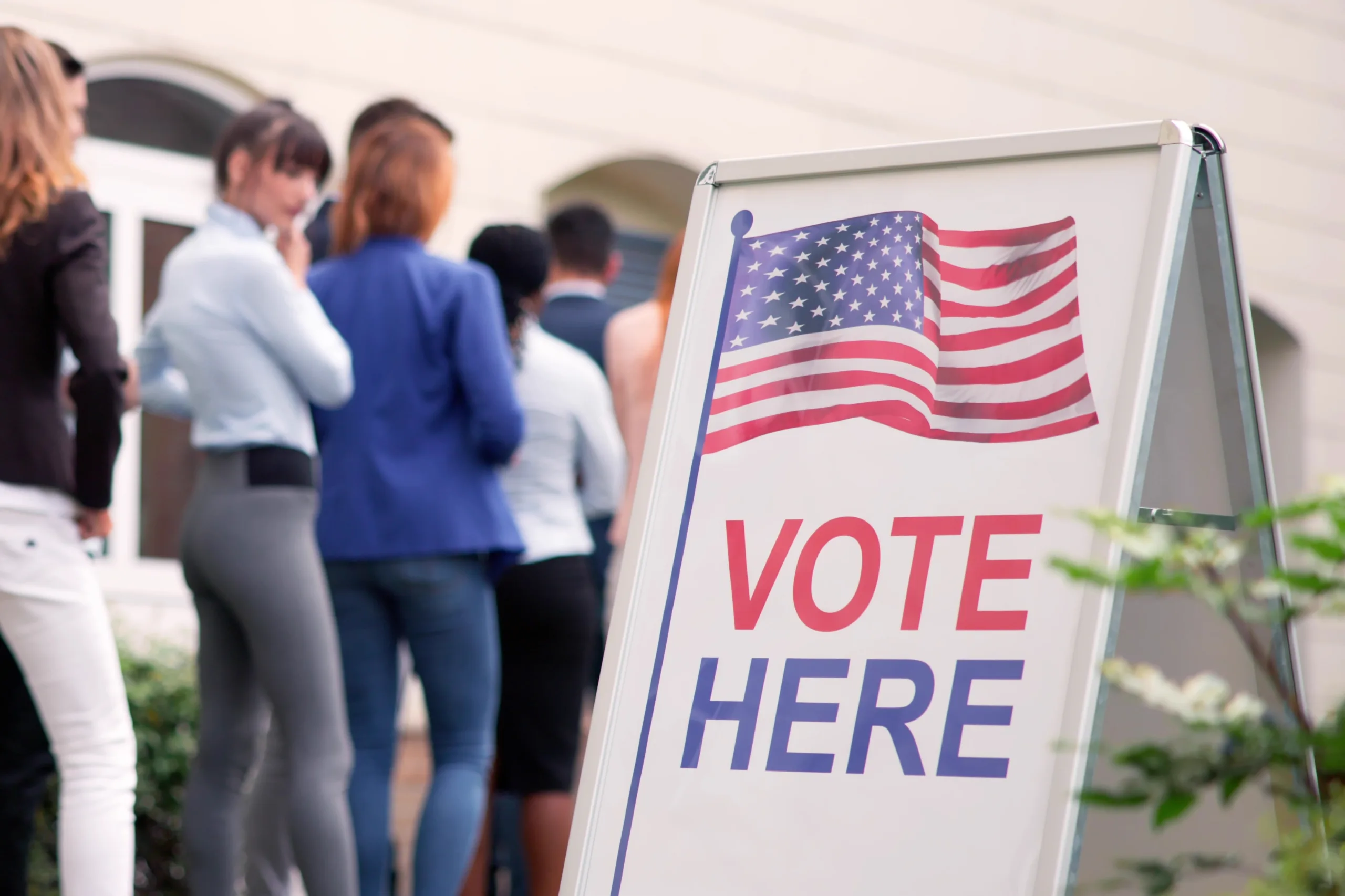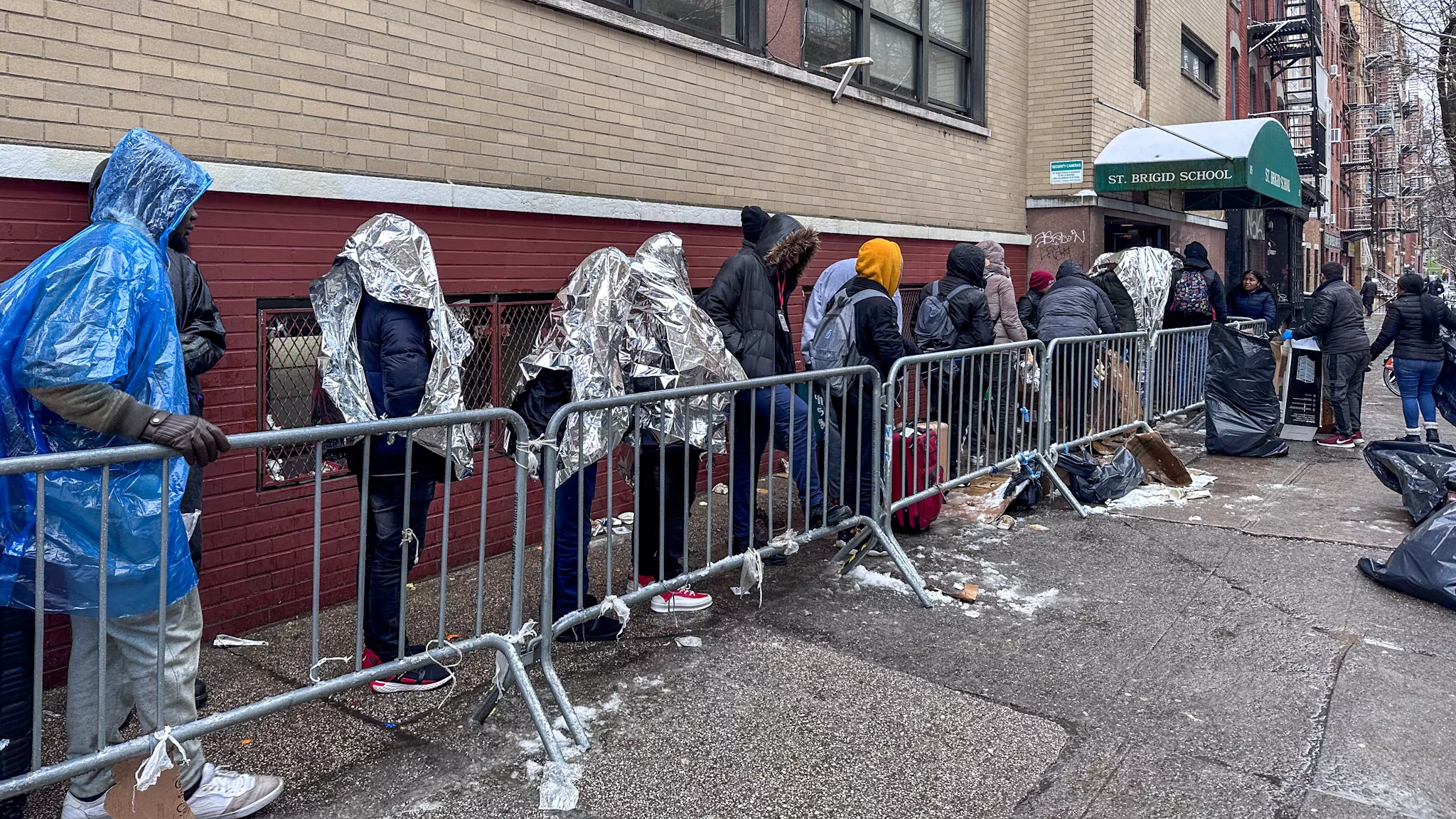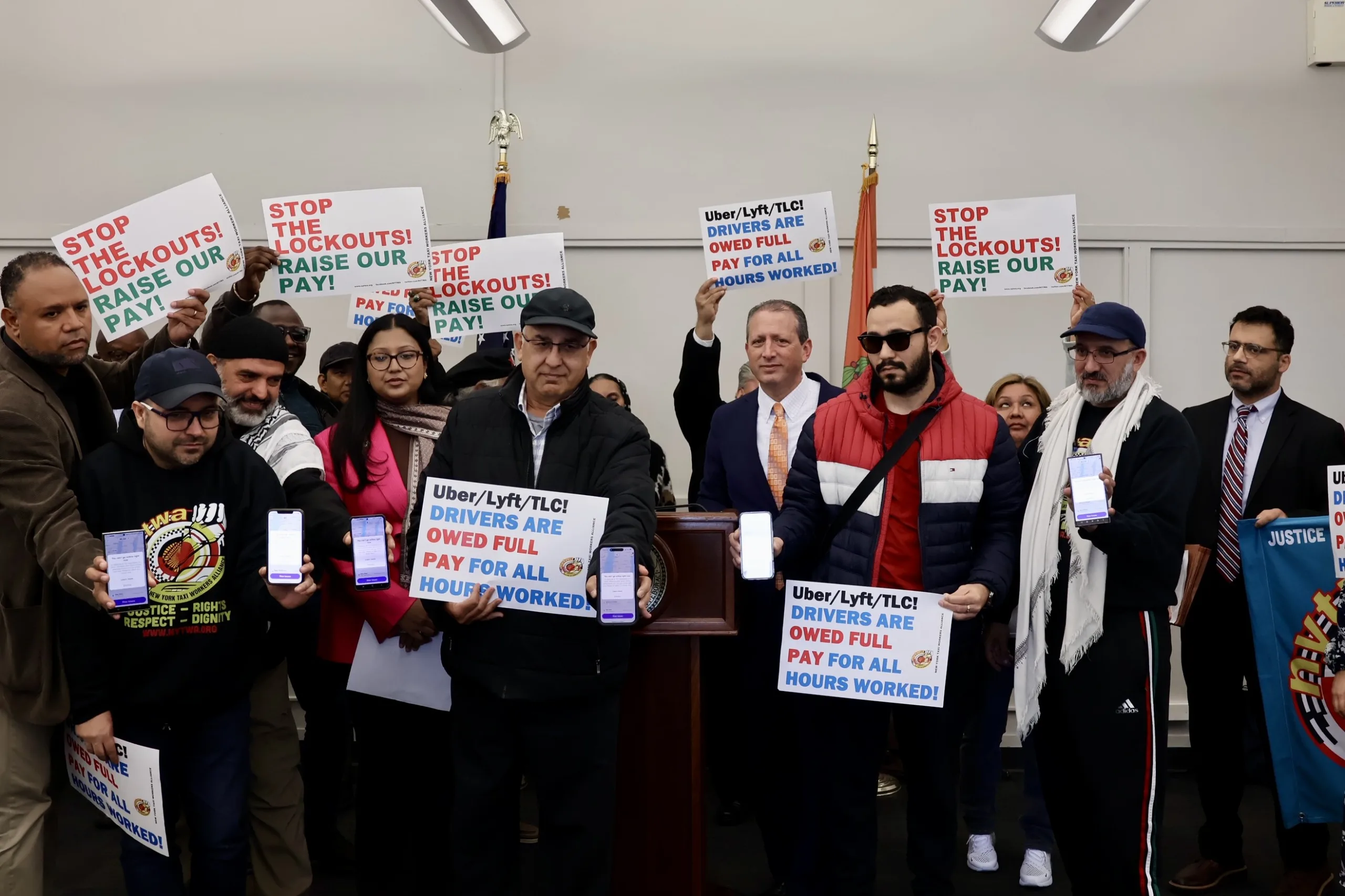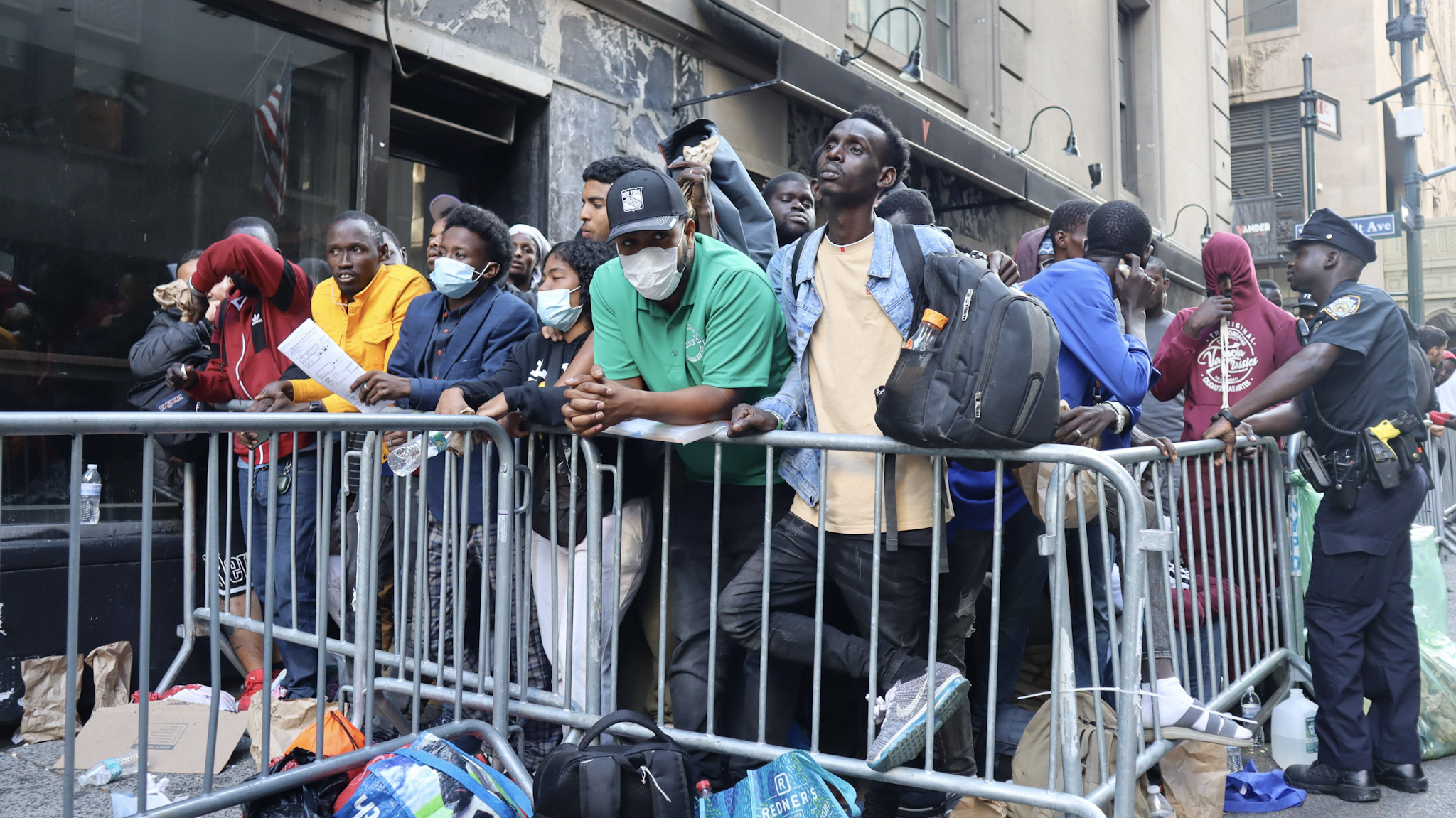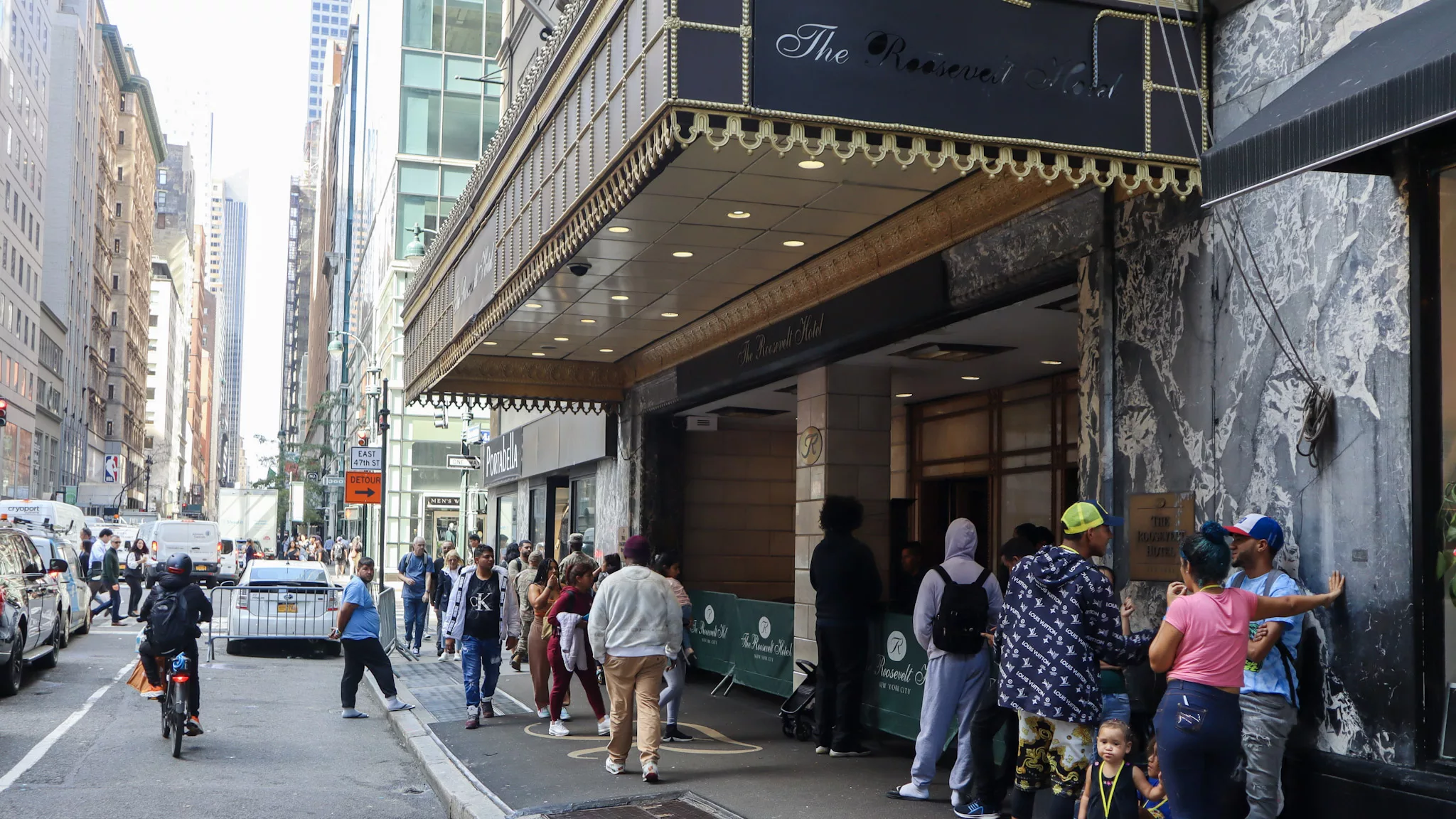During a visitto Long Island on Wednesday, President Donald Trump suggestedthat unaccompanied minors entering the country through the southwest border were doing so in order to commit acts of violence. “They look so innocent. They’re not innocent,” he said.
It’s a common theme in his speeches. The Trump administration and ICE have repeatedly cited criminal gangs and declining urban safety to justify the amped-up detentions and deportations across the country.
However, a look at ICE’s own arrest data in its New York City field office, which covers the city and a few neighboring counties, demonstrates that it is not only targeting criminals. The number of people without criminal records who have been detained by the agency per month shot up in fiscal year 2017 starting with the president’s inauguration in January of 2017.

Meanwhile, the number of ICE arrests of people with criminal records has barely increased. The difference is attributable to changes in prioritization; immigrants with criminal records, especially serious offenses, had already been a priority for arrest before Trump took office. Law-abiding immigrants or those with very minor offenses were often left alone. This makes them a new pool of possible detainees for ICE to tap into, hence the spike.

This doesn’t mean that people without criminal records are being removed at much higher rates. The court backlog, access to city-funded legal defense through the New York Immigrant Family Unity Project means cases are taking much longer. Immigrants, especially non-criminal ones with a better case to make before a judge, are not being removed at nearly the rates they’re being arrested.

It’s important to keep in mind that, despite the recent uptick, the number of New York non-criminal arrests at the end of the 2017 fiscal year, remain lower than there peak during the Obama administration in November 2014 before it began prioritizing people with criminal records. These numbers aren’t unprecedented so much as a boomerang back to the way things were then.

Ellis Island
New York City asylum seekers’ good odds may soon change
People seeking asylum in New York have better odds of getting it than refugees in any other part of the country. In 2016, judges at the immigration court in Manhattan granted asylum in 85 percent of all cases brought before them. The percentage varies depending on the judge, but even the most skeptical among them grant cases at around the national average. That may change as Attorney General Jeff Sessions – who as the head of the Department of Justice sets policies and precedents for the nation’s administrative immigration judges – conducts case reviews that could limit the ability of judges to deem domestic violence, and potentially other hardships he considers “private criminal activity,” as valid grounds for asylum. One attorney estimated that over 90 percent of his clients would potentially be immediately disqualified if they couldn’t use private crimes as grounds to claim asylum. WNYC
Judge grants bond hearing to immigrant in detention
A federal district court judge ruled that Augustin Sajous, an immigrant who has been held in ICE detention for eight months, was entitled to a bond hearing. The decision comes three months after the Supreme Court overturned a Ninth Circuit Court decision that had upheld a right to bond hearings. Following that February SCOTUS decision, the federal government tapered off bond hearings for immigrants in detention. However, that case addressed only whether the language of the statute governing immigration detention compels periodic bond hearings, and did not rule on the underlying question of a constitutional right to hearings, allowing other litigation to proceed. Sajous and his attorneys argue that a lack of bond hearings after a prolonged period in detention violated due process protections, and Judge Alison Nathan agreed. NYCLU, WNYC
Not much talk of immigration at state conventions
Despite its prominence as a national issue and the presence of the president in Long Island, specifically to speak on the subject, immigration wasn’t a hot topic at the Democratic and GOP state nominating conventions on Wednesday and Thursday. At the Democratic convention on Wednesday, more heatedly debated topics included gun control, education, union organizing and the fight for minimum wage. Governor Andrew Cuomo and former Secretary of State Hillary Clinton – who was there to endorse the former – made references to immigration as part of standing against the Trump administration, but offered no new policy commitments. At the GOP convention, attorney general candidate Keith Wofford said that states shouldn’t be making their own immigration policies over the wishes of the federal government. Max Siegelbaum for Documented, New York Daily News
Council members denounce mayor over legal representation
Several advocacy groups and council members gathered near City Hall on Wednesday to denounce the limits placed by the mayor on free legal representation for immigrants. The group criticized the conditions that immigrants with certain prior convictions would not be eligible for free legal representation from the New York Immigrant Family Unity Project. “Where the mayor is coming from on this issue, I don’t understand it,” said Councilman Daniel Dromm. “He really should get on board with this issue.” Representatives from Make The Road, The New York Immigration Coalition and Councilman Carlos Menchaca were also at the rally. Menchaca has been vocal in his criticism of the mayor on this issue. Mazin Sidahmed for Documented
Democrats invite President Trump to New York City for discussion about immigrants, not ‘animals’, New York Daily News
New York Trails Neighbors in Helping Dreamers Achieve an Education, Gotham Gazette [Opinion]
National
Some border separations can be permanent
As the federal government implements its new policy of separating children from guardians illegally crossing the southwest border some migrants find that they cannot then relocate their children in custody, or are even deported without them. More parents are now separated from their children after the government decided to start prosecuting all border crossers in federal courts. Agencies in charge of handling these children (who cannot be held in prolonged detention) will often send them to shelters scattered across the country without informing guardians or their attorneys where the child has been taken. Even if a child is found, there’s no guarantee that they will be reunited with their parent. In some cases, parents who sought to be deported along with their children found themselves being sent back alone. Houston Chronicle, Arizona Daily Star
… and unaccompanied minors fare no better
Documents obtained and analyzed by the American Civil Liberties Union and University of Chicago Law School contain hundreds of separate allegations of mistreatment of minors in the custody of Customs and Border Protection from 2009 to 2014, many of whom were unaccompanied minors. The report they produced highlights allegations of physical abuse, inadequate medical care – including for babies that were born to teen parents in custody – unsanitary conditions, and verbal harassment. CBP responded to the findings by claiming they contained unfounded allegations and that oversight agencies had not substantiated some of the claims. The report acknowledges that the documents aren’t definitive or well-organized. The authors stand by their findings, pointing to repeat occurrences that they say show a pattern of misconduct. San Diego Union-Tribune
Court backlog only getting worse
The backlog of cases in the nation’s immigration courts just keeps getting bigger, with a 25 percent increase in pending cases since President Trump took office. The ballooning dockets are due to a confluence of factors, including the end of discretion when it comes to who is put into deportation proceedings, shifts in court priorities that shuffle around who gets their cases heard first, and the reopening of cases that had already been closed. Last week, Attorney General Jeff Sessions limited the ability of immigration judges to administratively close cases and laid the groundwork for a reopening of what could be tens of thousands cases. With pending cases now nearing 700,000, both anti-immigration hard-liners and pro-immigration activists want to see the backlog reduced, though there is little agreement on how best to go about it. Wall Street Journal
Migrant killed in Texas
A Customs and Border Protection agent shot and killed a migrant in Rio Bravo, Texas, on Wednesday. The circumstances of the shooting remain unclear, but the agency said that a group of agents responded to a report of illegal activity and came across a group of undocumented immigrants, which CBP alleges attacked the agents with blunt objects. A local bystander captured a video of the aftermath, which shows agents leading people away while the bystander yells at the agents that they hadn’t been injured by the migrants. The person killed has been described as female and Guatemalan, and the incident is under investigation by the FBI and the Texas Rangers. CNN
Trump’s Immigration Crackdown Is a Boom Time for Private Prisons, Mother Jones
Opinion
- Immigration disputes overlook LI’s desperate communities, by the Editorial Board. Newsday
- Why I fight for protecting immigrant students and the future of the nation, by Rep. Adriano Espaillat (NY-13). The Hill
- We must protect migrant children from abuse by U.S. Border Patrol, by Claudia Flores, assistant clinical professor of law and director of the International Human Rights Clinic at the University of Chicago Law School. Chicago Tribune
Washington – Trump says no trials needed for immigrants
Fresh off an anti-immigration event with a friendly crowd on Long Island on Wednesday, President Trump launched into a diatribe against the way immigration cases are handled during an interview on Fox News Thursday.
Among other things, he derided the idea of hiring more immigration judges – his own Department of Justice’s stated policy for reducing the immigration court backlog – and questioned the idea of having due process at all.
“Whoever heard of a system where you put people through trials? Where do these judges come from?” he said.
孰真孰假?对特朗普关于移民的言论的事实核查
Removing the current legal framework for adjudicating immigration cases would violate domestic and international law, as well as the Constitution. The extreme suggestion indicates the direction in which the President is moving on the immigration court system.
A day earlier, at his Long Island roundtable, the president had voiced support for cutting foreign aid to countries that he felt allowed undocumented immigrants to travel to the United States.
During the Thursdayinterview, Trump also aired his thoughts on the budding movement by frustrated Republicans in the House to force a vote on the protection of Dreamers, saying no legislative solution should eschew his plan for a border wall. CNN, Washington Post, Newsweek
Manhattan, New York – May 6, 2018: Views of Federal Plaza building. Photo: Christopher Lee for Documented.
